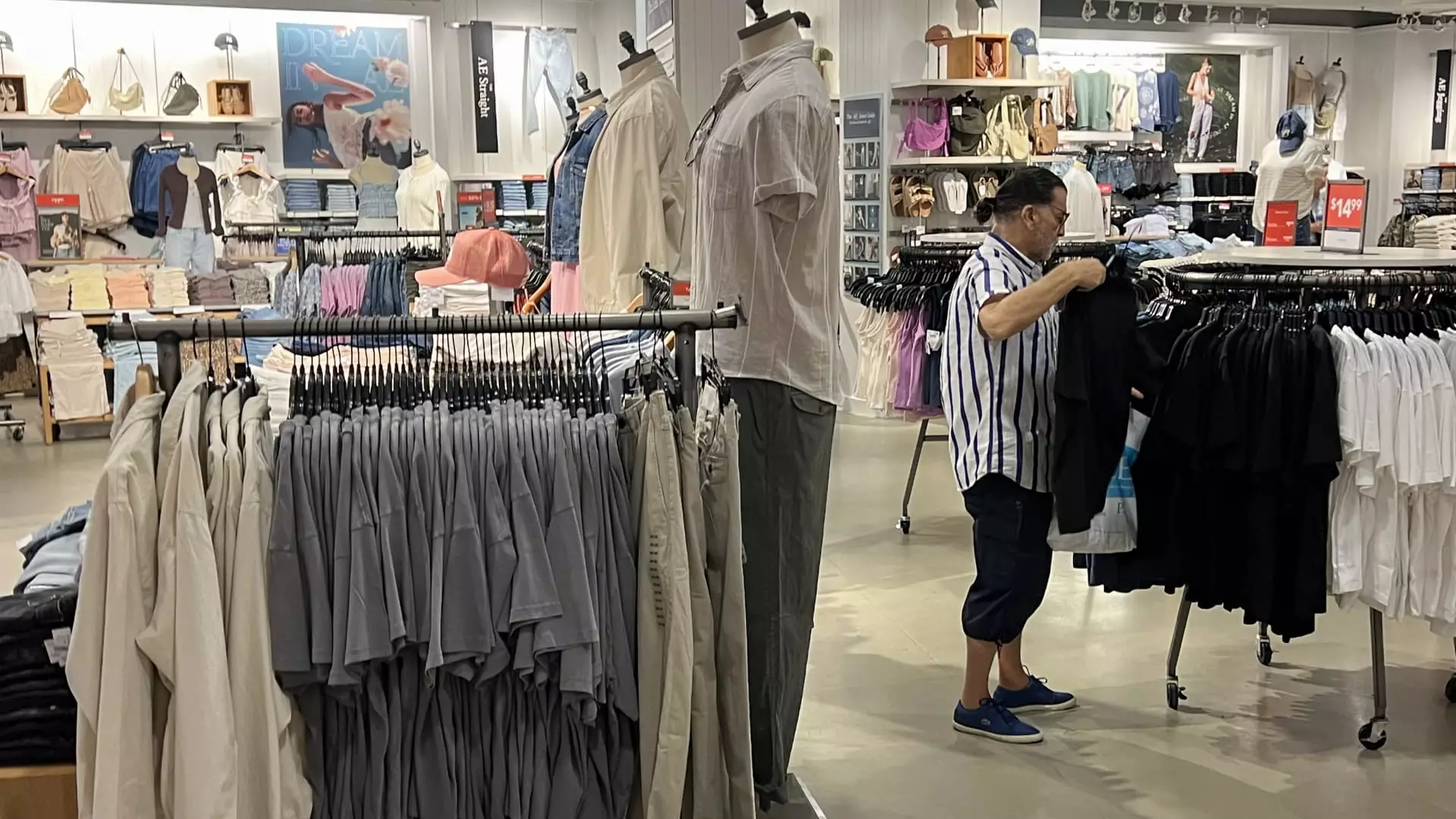In an era characterized by rampant consumerism and a relentless quest for more, recent trends indicate a surprising metamorphosis in the mindset of American consumers. Faced with economic instability, many individuals are reconsidering their buying habits and opting for a minimalist approach to life. This paradigm shift suggests a recognition that more does not necessarily equate to better. With figures indicating that a staggering 83% of consumers are considering trimming non-essential expenditures, it seems that the mantra of “less is more” is slowly gaining traction among the populace. This sentiment has gained endorsement from unexpected quarters, including former President Donald Trump, who provocatively stated that Americans could live quite well with fewer items — even suggesting that owning only five pencils instead of 250 might suffice.
The Impact of Economic Strain
The choice to cut back on unnecessary spending isn’t merely an exercise in restraint; it is a response to an increasingly precarious financial landscape. Rising inflation and erratic tariff policies have induced an atmosphere of uncertainty that many Americans find unsettling. Reports indicate that over half of adults—54%—indicate they plan to scale back expenses on travel, dining, and leisure activities this year compared to the previous one. The looming figure of stagflation, a blend of stagnation and inflation that destabilizes the economy, adds further urgency to the matter. As Ted Rossman, a senior industry analyst at Bankrate, astutely observes, “It sort of feels like something has to give,” encapsulating the anxiety that resides within the average consumer.
The Unseen Toll of Economic Policy
While the administration’s trade policies aim to bolster American jobs, they are not without cost. The conflict surrounding tariffs has bred an atmosphere of skepticism among consumers, who, despite their willingness to spend, are simultaneously gripped by trepidation about the future. Jack Kleinhenz, chief economist of the National Retail Federation, observes that although consumer spending has propped up the economy, sentiments are beginning to sour, signaling an imminent turning point. When fear permeates the financial landscape, consumers naturally become more judicious with their finances, choosing to save rather than spend.
This anxiety is further evident in consumer sentiment metrics, which have plummeted to historic lows. According to the Conference Board, expectations regarding future economic conditions have dipped to their lowest levels since 2011. This dawning realization that one’s financial preparedness is in jeopardy has permeated daily life; 44% of Americans now contemplate their financial stability every day, an unsettling statistic that reflects a society under pressure.
The Psychological Strain of Debt
The financial burden on American households has grown increasingly heavy, leading to record-high credit card debt fueled by spiraling costs. The resumption of student loan collections has placed additional strain on already beleaguered families, who find their disposable income diminishing at an alarming rate. The combination of high-interest rates, escalating prices, and predatory lending practices creates a cycle of stress and anxiety, where each dollar spent becomes a potential source of regret. The American consumer is, in many respects, caught in a trap — the more they spend in a bid to enjoy life, the deeper they sink into emotional and financial turmoil.
This paradigm shift towards minimalism, while commendable, underscores a painful reckoning with the realities of modern consumer culture. It is deeply ironic that it takes a crisis of confidence for people to reevaluate what they truly value in their lives. The prioritization of experiences over possessions could usher in a new cultural narrative, one where well-being is measured not by material wealth but by emotional and financial resilience.
The Future of Consumer Culture
As we navigate through this tumultuous economic climate, the emerging trend of minimalism could very well represent more than just a reaction; it could signify a cultural awakening. The need to adapt to a challenging financial landscape has forced many to confront the reality of their consumption. Understanding that satisfaction doesn’t have to be linked to material excess opens the door to a richer sense of fulfillment. As individuals lean into sustainable choices and habit changes, there’s hope that American consumer culture can evolve toward a more mindful approach, balancing desire and reality in a way that fosters genuine contentment.

